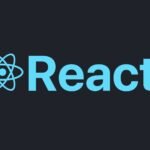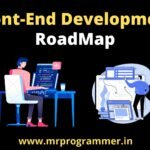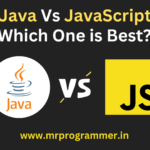If you are a programmer you might have heard about 100 days of code. But have you ever thought about what is 100 days of code? challenge that many people on the internet are trying.
In this post, we will learn about 100 days of code challenge and divide it into multiple day-wise parts to understand it well. So that you can also get an idea about this and learn how to do this challenge.
Also Read: How to Start a Coding Career in 2024 With No Experience
Table of Contents
100 Days of Code A 100-Day Challenge
We will divide this into 10 different parts starting from Day 1 to Day 100.
Day 1-10: The Basic Foundation
The first ten days of the journey are dedicated to establishing a strong foundation, Grab the Basics like HTML, CSS, and JavaScript. Understanding the syntax, learning the principles of web development, and creating simple web pages can help to get started.
Day 11-20: Getting Started with Python
As the journey progressed, the focus should be shifted to Python, a versatile and widely used programming language. Learning Python’s syntax, data structures, and basic algorithms became crucial. Concepts like variables, loops, and functions were explored, providing a solid base for more complex challenges ahead.
Day 21-30: Building the Logic
Programming is not just about writing code; it’s about solving problems logically. 21-30 Days are dedicated to sharpening logical thinking and algorithmic skills. Solving coding problems on different platforms like HackerRank and LeetCode became a daily task, enhancing the ability to break down complex problems into manageable tasks.
Day 31-40: Exploring Frameworks
With the fundamentals, attention turned towards popular frameworks. Learning how to use libraries like React for frontend development and Flask for backend development. The goal was to build a comprehensive understanding of how different components interact to create functional and awesome applications.
Day 41-50: Diving Deeper into Databases
The journey took a deeper dive into databases, exploring both SQL and NoSQL variants. Understanding database design principles and practicing CRUD (CREATE, READ, UPDATE, and DELETE) operations were pivotal. Concepts like normalization, indexing, and database optimization were introduced, to give importance to efficient data management.
Day 51-60: Version Control with Git
As the codebase grows, version control is important to manage all your code. Days 51-60 were spent mastering Git, a powerful tool for tracking changes and collaborating on projects. The ability to navigate branches, resolve conflicts, and work seamlessly with a team became essential skills.
Day 61-70: Web Development Beyond the Basics
After we learned the basics of web development in the first 10 days. Then we will dive into some advanced concepts of web development. Exploring topics like authentication, authorization, and security became vital. Understanding RESTful APIs and integrating them into applications to add another layer of complexity, to make more complicated projects.
Day 71-80: Cloud Computing and Deployment
In today’s tech world. familiarity with cloud services is important. Days 71-80 were dedicated to exploring cloud platforms like AWS and learning how to deploy applications. The ability to scale and manage resources efficiently in the cloud became a valuable skillset.
Days 81-90: Full Stack Development
With a solid understanding of both frontend and backend development, the journey transitioned into full-stack development. Building end-to-end applications, handling data flow, and creating seamless user experiences were at the center. The goal was to bring together all the acquired skills into an integrated and functional project.
Day 91-100: Specializing and Reflecting
In the final stage of the journey which is from Day 91-100, the focus shifted towards specialization. Whether it was diving deeper into machine learning, exploring mobile app development, or diving into DevOps practices, the goal was to enhance expertise in a specific domain. The last few days were reserved for reflection – looking back at the progress made, identifying areas of improvement, and setting the stage for future learning.
Conclusion
In conclusion, The 100-Day Coding Journey is not just about writing code or acquiring technical skills, it’s a testament to dedication, perseverance, and the pursuit of excellence. If you are also planning to start this 100 days of code challenge then this post will help you throughout your journey.
- Introduction to Entrepreneurship: Everything You Need to Know Before You Start - June 12, 2025
- What Sets Artificial Intelligence Apart from Humans? - April 18, 2025
- Python Programming: A Comprehensive Guide for Beginners - March 27, 2025








